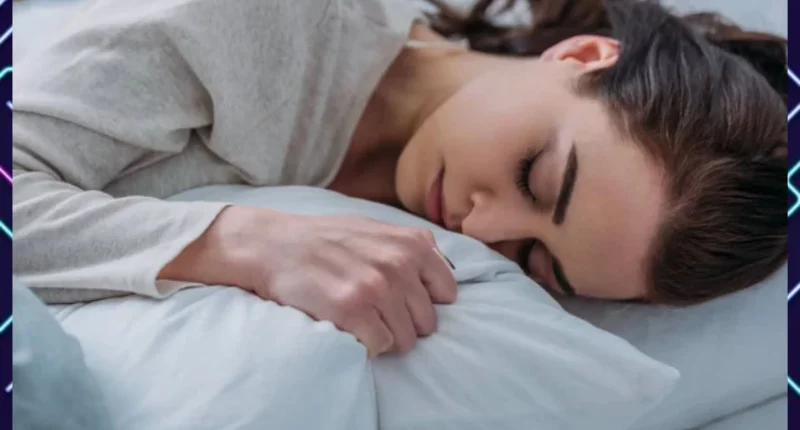Adequate sleep is important hence, sleep deprivation should be avoided by all means. The American Academy of Sleep Medicine and the Sleep Research Society emphasize that adults should aim for at least seven hours of sleep each night to support optimal health. However, a recent report from the Centers for Disease Control and Prevention (CDC) highlights a troubling trend: approximately 35% of adults globally fail to meet this minimum requirement.
Factors contributing to this widespread sleep deprivation include the relentless pace of daily life, with work commitments, social obligations, and the pervasive influence of technology often encroaching on personal time. The rise of remote work, while offering flexibility, has blurred the boundaries between professional and personal life, leading many to sacrifice sleep for productivity. Additionally, the prevalence of screens—whether from smartphones, computers, or televisions—has been shown to disrupt sleep patterns, making it harder for individuals to wind down at night.
The consequences of inadequate sleep are profound. Regularly sleeping less than seven hours is linked to a host of health issues. Lack of sleep not only affects physical health but also impairs cognitive function and increases the risk of accidents due to decreased alertness.
1. Sleep Deprivation Impairs Your Brain’s Ability To Process Information
When it comes to processing information, the brain’s efficiency is heavily reliant on sleep. During sleep, particularly in the stages of deep non-REM and REM sleep, the brain actively consolidates and organizes the information it has absorbed throughout the day. This process is crucial for memory retention and cognitive function.
A report by Sleep Foundation highlights that sleep deficiency can severely impair the brain’s ability to retain information. For instance, research indicates that inadequate sleep can reduce learning capabilities by as much as 40% and lead to significant cognitive impairments, including difficulties in memory formation and emotional regulation.
CDC has linked sleep deprivation to increased risks of mental health issues such as depression and anxiety, as well as engaging in risky behaviors.
Moreover, the brain’s activity during sleep is not merely a passive state; it is a dynamic period where neural connections are strengthened and restructured. This “rewiring” is essential for the brain to create a coherent map of the day’s experiences and to prepare for future learning opportunities. Without sufficient sleep, the brain struggles to establish these connections, leading to a decline in overall cognitive performance and well-being.
2. Your Eyes Appear Weak And Tired
Sleep deprivation can impact the appearance and health of your eyes. Insufficient sleep may lead to various eye-related issues, including drooping eyelids, swelling, redness, and dark circles beneath the eyes, eye twitches and spasms, and blurry vision. These physical manifestations are often accompanied by discomfort, such as dry or itchy eyes, and can even result in more severe conditions over time.
To mitigate these effects, it is essential to prioritize sleep. Experts recommend that adults aim for seven or more hours of quality sleep each night. Establishing a consistent sleep routine, avoiding screens before bedtime, and creating a comfortable sleep environment can help improve overall eye health and appearance.
3. You May Notice Changes In Your Sense Of Smell
Sleep deprivation not only affects the immune system but also alters the way the brain processes smells, particularly food odors, which can lead to changes in appetite and food choices.
when an individual is sleep-deprived, the activity in the piriform cortex—the brain region responsible for interpreting smells—becomes heightened in response to food-related odors. This heightened sensitivity can lead to a preference for energy-dense foods and high-calorie foods, such as doughnuts and pizza, as the brain’s ability to differentiate between food and non-food odors sharpens under these conditions.
4. Your Heart May Begin To Get Weak
Not getting enough sleep is associated with several conditions that raise the risk of heart disease and stroke, CDC. Recent data from the American Heart Association indicates that nearly 6.5 million Americans over the age of 20 are currently living with heart failure, with 960,000 new cases diagnosed each year among adults aged 55 and older.
This condition is often preceded by other heart-related issues, with high blood pressure being a risk factor. When blood pressure remains elevated, the heart must work harder, which can lead to its chambers enlarging and weakening over time, ultimately resulting in heart failure, NIH.
During normal sleep, your blood pressure naturally goes down. However, if you have sleep problems, your blood pressure stays elevated for a longer period. Adults who sleep less than 7 hours per night are more likely to report health problems such as heart attack, asthma, and depression
Skin Inflammation May Occur
According to the National Sleep Foundation, lack of sleep can contribute to the development of acne, eczema, and psoriasis.
The fact is that when you sleep, your body works to repair damaged cells and tissues. So lacking sleep can interfere with this process, causing inflammation in skin cells.
Additionally, sleep deprivation is linked to an increased risk of obesity. When individuals do not get enough sleep, hormonal imbalances can occur, particularly with hormones that regulate appetite. This can lead to increased cravings for high-calorie foods, resulting in weight gain and a higher body mass index (BMI) over time.
So If you’re struggling with insomnia or other sleep-related issues, it’s important to address the underlying causes. Consider seeking advice from a healthcare professional or exploring natural remedies for better sleep, such as relaxation techniques, limiting screen time before bed, and creating a comfortable sleep environment.
You may also want to read about Insomnia: Causes and treatment
Extra References
1. National Institutes of Health. Extent and Health Consequences of Chronic Sleep Loss and Sleep Disorders. In Sleep Disorders and Biological Rhythms in Psychiatry (pp. 199-206). https://www.ncbi.nlm.nih.gov/books/NBK19961/
2. UCI Health. Sleeping health issues. https://www.ucihealth.org/blog/2017/06/sleeping-health-issues
3. Better Health Channel. Sleep deprivation. https://www.betterhealth.vic.gov.au/health/conditionsandtreatments/sleep-deprivation










